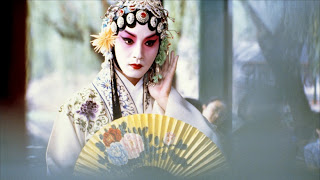Though it suffers from some awkward editing, this low-key indie comedy, featuring lovely performances from Aubrey Plaza and Mark Duplass, is entertaining, enjoyable, and heartfelt enough to make some flaws easy to ignore. By focusing more on character than its tiny shades of science fiction, the film really delivers, and never strains to be more than it is.
Best Film (DVD): The Man Who Wasn't There
One of the less-talked about films of the Coen brothers' resume, this stab at noir surprisingly ranks among some of their strongest work. Featuring top notch work from the cast, a subtle sense of humor, and a bit of carefully managed strangeness, this under-appreciated gem is worth checking out as you wait for Joel and Ethan's next offering, due in early 2013.
Best Director: Ridley Scott - Prometheus
Ridley Scott's return to sci-fi may have not yielded the masterpiece many were clamoring for, but despite the bumps (mostly from the screenplay), the film did prove a return to form for Scott himself. A director who has had his fare share of forgettable films over the past decade, Prometheus showed Scott at his best, drawing out nice work from his actors, and creating, with his collaborators, an elegant, chilly, and eerie atmosphere that helped keep the flaws in check, and make the film an entertaining watch all the way through.
Best Male Performance: Mark Duplass - Safety Not Guaranteed
A name on the indie circuit for a few years now, Duplass is finally really having a break out year this summer. In Safety Not Guaranteed, Duplass hits all of the right notes with his character, making him compelling and keeping us guessing, never making him a weird guy who can be used for easy jokes.
Best Female Performance: Gong Li - Raise the Red Lantern
It's easy to understand why Gong Li's career skyrocketed after her performance in Zhang Yimou's melodrama. Though the performance is often restrained, Li captures the character's constantly shifting emotions as she rolls with the ups and downs of sharing a husband with three other women.
Best Ensemble Cast: Mean Creek
One of the great difficulties ensemble films have is using every member of the cast effectively. That's not the case with Jacob Estes' Mean Creek, which features first-rate work from a terrific and very young ensemble, making this bleak teen morality tale all the more haunting.
Best Screenplay: The Man Who Wasn't There by Joel and Ethan Coen
For a film with one decidedly out-there plot element, it's surprising that The Man Who Wasn't There works so well as both a sly satire of the noir genre, as well as a sincere noir film. The Coens' resist the temptation to turn the film into a full-blown parody, and as such the little jabs taken at the noir genre register more due to their smart integration into a richly realized plot.




















































